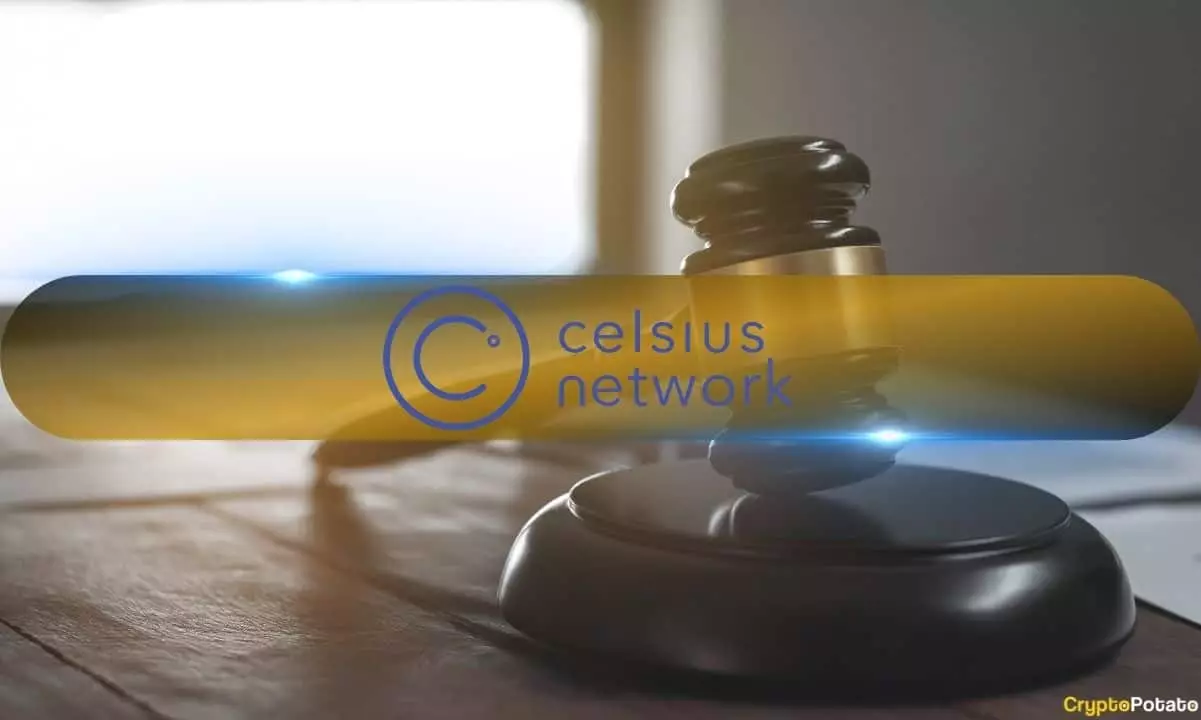In an unprecedented move within the realm of bankruptcy law, a judge from the Southern District of New York has given the green light for Celsius Network to utilize non-fungible tokens (NFTs) for serving legal notices. This development marks not only a critical juncture for Celsius, which is currently dealing with insolvency, but also sets a significant legal precedent in the treatment of digital assets in the judicial system.
Celsius Network, a cryptocurrency lending platform, is embroiled in bankruptcy proceedings in the wake of allegations regarding fraudulent financial maneuvers. The company’s struggle stems from its efforts to trace funds that were allegedly misappropriated and transferred to unidentified digital wallets. Unlike traditional banking systems where transactions can be more readily traced, the decentralized nature of cryptocurrency presents unique challenges for law enforcement and legal systems. With anonymity at the heart of crypto transactions, Celsius has discovered that conventional methods of service—such as sending physical notices—are largely ineffective for reaching the individuals behind these wallets.
To combat these challenges, Celsius Network proposed an innovative solution that harnesses the technology of NFTs. Each NFT would serve as a digital notice containing a hyperlink that directs the recipient to a dedicated website housing the legal complaint and other pertinent documents. By leveraging NFTs, Celsius aims to bypass the hurdles posed by anonymity, effectively bringing the legal action to the actual wallet holders. The airdrops will deliver these digital tokens directly to the wallets associated with the questionable transactions, merging the digital with the legal in a distinctive manner.
The involvement of FTI Consulting adds an additional layer of credibility to this approach. By ensuring that the NFTs can be accurately tracked upon delivery and accessed, FTI aims to validate the process and substantiate that it reaches real individuals rather than automated systems. This comprehensive tracking includes monitoring when the tokens are accessed and ensuring website traffic is genuine, thus safeguarding the integrity of the notification process.
Judge Martin Glenn’s endorsement of Celsius’s strategy signals a notable shift in legal attitudes toward emerging technologies. In his ruling, he articulated that traditional service methods were insufficient, especially considering the difficulties in identifying the digital wallet holders through standard legal channels. Under New York law, when traditional service means are impractical, alternatives may be pursued, provided due process standards are upheld. The court acknowledged that serving legal notices through NFT airdrops could meet these criteria, deeming it a proportionate method to ensure that defendants are well-informed of the legal actions taken against them.
The ruling suggests a broader recognition of digital communication methods in the legal realm, drawing parallels to the early adoption of email as a means for legal service. Just as email transformed how notifications are disseminated, NFTs introduce a modern solution to the complications surrounding cryptocurrency transactions.
The implications of this case extend beyond the immediate circumstances of Celsius’s bankruptcy. This precedent may pave the way for other organizations in similar situations to utilize blockchain technology as a legitimate means of notification. It raises essential questions about the evolving definition of legal communication and the revolutionary potential of digital assets in the judicial framework.
As the legal system continues to grapple with the complexities of cryptocurrencies, Celsius Network’s creative solution demonstrates the need for adaptability and innovation in the face of new technological challenges. By embracing change and looking to modern tools like NFTs to bridge gaps in traditional processes, the legal system may enhance its efficacy and relevance in a rapidly changing digital landscape.
Celsius Network’s groundbreaking approach not only addresses the immediate challenges of their bankruptcy proceedings, but also sets a remarkable precedent for future legal practices in the age of digital assets. The utilization of NFTs for legal service could very well signal the dawn of a new era in how the law interacts with technology, ensuring that it remains competent and responsive to the needs of its citizens in the face of technological transformation.
















Leave a Reply